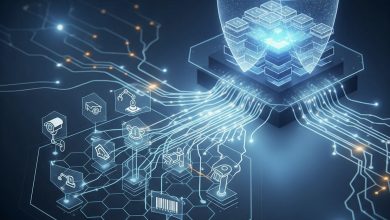
Artificial Intelligence is used all around us, for everything from control of city traffic flows to the logistics of multinational companies. As with many automation technologies we’re familiar with, it takes time-consuming, difficult, or dangerous tasks, and simplifies them for human operators.
The washing machine didn’t remove the need for humans in the process of laundering clothes. What it did do was change the process. Rather than a human doing laborious tasks repetitively, the machine just requires sorting of clothes by colours and types and configuration of settings. It eradicated most of the physical aspects of the job but still means we must pay close attention to where the process could go wrong. This is a simple but perfect analogy for the use of AI.
There is a danger when trying to allow AI to take over 100% from a human. A pilot who flies a plane rather than relying on autopilot will be honing their skills and utilising their training. In the rare situation where an error occurs on autopilot, the human pilot still needs to be alert and ready to assume full control.
While the prospect of making every job or task easier and more efficient using AI can be exciting and tempting, it’s important we don’t forget about the training and work that goes into fixing things if the machine goes wrong.
Interpretive AIs, such as ChatGPT or Google Bard, are showing people the power of general use of AI to greatly simplify varying aspects of their jobs and general lives. Using these tools to organise thoughts, programming, and prose in a way that seems natural and logical, but at a low cost, will revolutionise many aspects of our lives.
AI as a tool is clearly extremely useful.
However, just like the person who puts all their washing in the machine at 60°C and expects good results, there are pitfalls that need to be understood.
Programmers writing code using AI will have to focus more on the inputs and outputs of the process, to ensure the tool is coherent and suitable.
Smaller tasks are the ones that I see AI having a massive impact on. Larger tasks are usually optimised by employing programmers and logistic managers. They analyse the inefficiencies in a system, where people are doing repetitive tasks, and create systems that mean those tasks can be done by a machine or computer automatically.
Smaller, ad-hoc tasks, however, do not have the economic viability to put these big solutions in place. Therefore, the person needs to understand the issue, research solutions, and create a novel process. Otherwise, they just do the small task repetitively for as long as is required.
Interpretive AI can quickly create solutions for these small tasks, reducing research and creation time. The huge strides that I expect it to make are for people untrained in specific disciplines and expertise.
Take, for instance, law. Law is a hugely complex area, where specific subtle wordings in contracts or precedents from past cases can have huge implications. Lawyers train for years to understand and organise their thoughts and prose to be valuable to clients. However, they have also thankfully generated a huge amount of data.
This data can now be analysed, such that lay people could use an interpretive AI to analyse legal documents and be immediately alerted to certain issues which need addressing.
Recently, a new study revealed that ChatGPT can outperform most law school graduates on the bar exam, which is a two-day test.
Next time you receive a contract or NDA, AI could analyse it for you to say where the wording may cause issues. Therefore, a lawyer’s job could be altered from having years of training and knowledge of prior cases to simply checking assumptions and results quickly.
This is just one example, but clearly, any trained intellectual discipline is at risk of being dramatically altered in the coming decade. Anything from medicine, engineering, statistical analysis, translators, graphic design, and many more are in the sights of AI.
However, humans will still be required for these, even if tasks change from process generation to simply checking and testing inputs and outputs.
There is a chance we may choose to train less in these professions as a result, but that will depend on what value we put on different aspects of our society. The fact we would be freeing up the highest educated parts of the workforce can only be a benefit as they utilise their learning to achieve greater benefits for both themselves and society.
As people in the next few years start to realise what a huge impact this new tool will have on their profession, home life, and relationships with other people, it will be interesting to see the demographic who are open to the change compared to those who might need convincing.
Dynamic new organisations may take advantage of these AI tools to reduce costs and improve productivity. Scale-up for tools that are not physical are always in high demand, due to not having to create factories or distribution networks to get them into the hands of people.
Therefore, these changes are going to happen fast. Better get ready.




